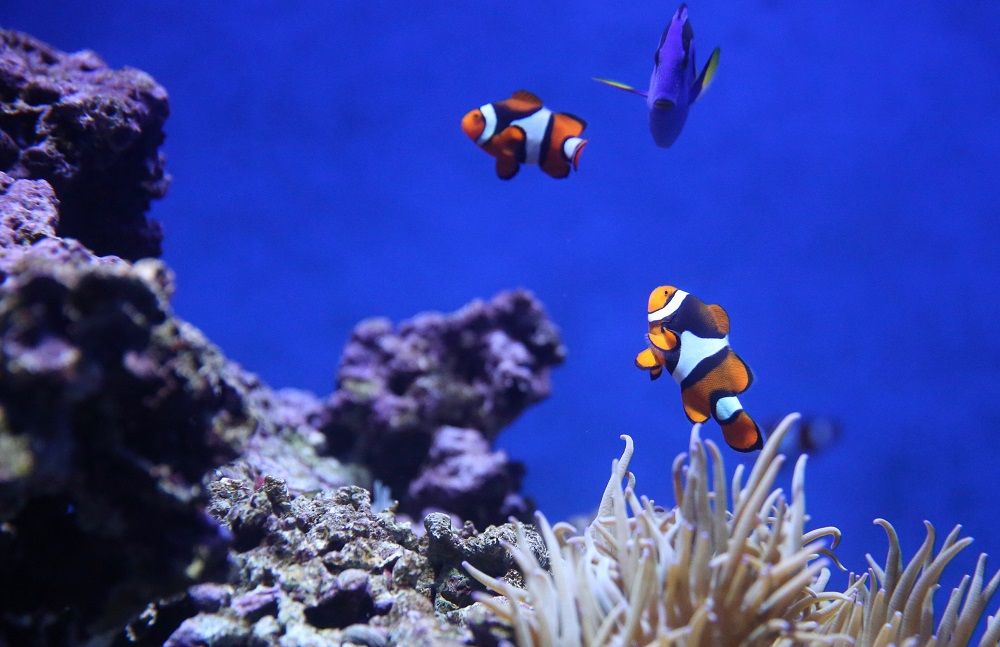
Many of the world’s reefs are facing massive decline: they are highly vulnerable to marine pollution, overfishing, and global warming. Due to ocean acidification, corals bleach and die, and like that, it is estimated that half of the Great Barrier Reef was lost between 1985 and 2012.
Now international researchers from the Australian Institute of Marine Science, Universities of Exeter and Bristol, and Australia’s James Cook University are trying out some interesting ways to bring the reefs back.
The team set up underwater loudspeakers, which play sounds found in healthy reefs in severely damaged areas. Fish and other organisms looking for new habitat within the acoustic range of the speakers are attracted to the noises — and as they come back, so do others.
This is how it looks:

In fact twice as many fish remained in damaged areas where the sounds were being played compared with areas without the speakers, according to their study recently published in Nature Communications.
Senior Author of the Study, Steve Simpson of Exeter University, explained:
“Healthy coral reefs are remarkably noisy places — the crackle of snapping shrimp and the whoops and grunts of fish combine to form a dazzling biological soundscape. Juvenile fish home in on these sounds when they’re looking for a place to settle. Reefs become ghostly quiet when they are degraded, as the shrimps and fish disappear, but by using loudspeakers to restore this lost soundscape, we can attract young fish back again.”
The method the researchers call “acoustic enrichment” could be used to “kick-start the natural recovery process” in heavily damaged reef ecosystems, according to one of the project’s lead researchers, Tim Gordon.
Attracting fish to dead reefs won’t automatically bring them back to life, but “recovery is underpinned by fish that clean the reef and create space for corals to grow” said Dr. Mark Meekan, Senior Principal Research Scientist at the Australian Institute of Marine Science.
The experimental acoustic area not only attracted coral-cleaning fish but also doubled the diversity of species in the area, including predators, herbivores, detritivores, and planktivores. This diversity of fish and other animals can gradually restore the functions of the reefs.

According to Professor Andy Radford of Bristol University, who co-authored the study:
“Acoustic enrichment is a promising technique for management on a local basis. If combined with habitat restoration and other conservation measures, rebuilding fish communities in this manner might accelerate ecosystem recovery… However, we still need to tackle a host of other threats, including climate change, overfishing, and water pollution in order to protect these fragile ecosystems.”

This technique may not be able to save coral reefs on its own, but it’s one more tool that can be deployed in the fight to protect biodiversity in these vulnerable and incredible ecosystems.
Join the budding community of conscious consumers right now and help save the planet! For more good news and ways to live healthier, more sustainable lives, be sure to install NatureHub app.
Download it here: Apple iOS • Android






